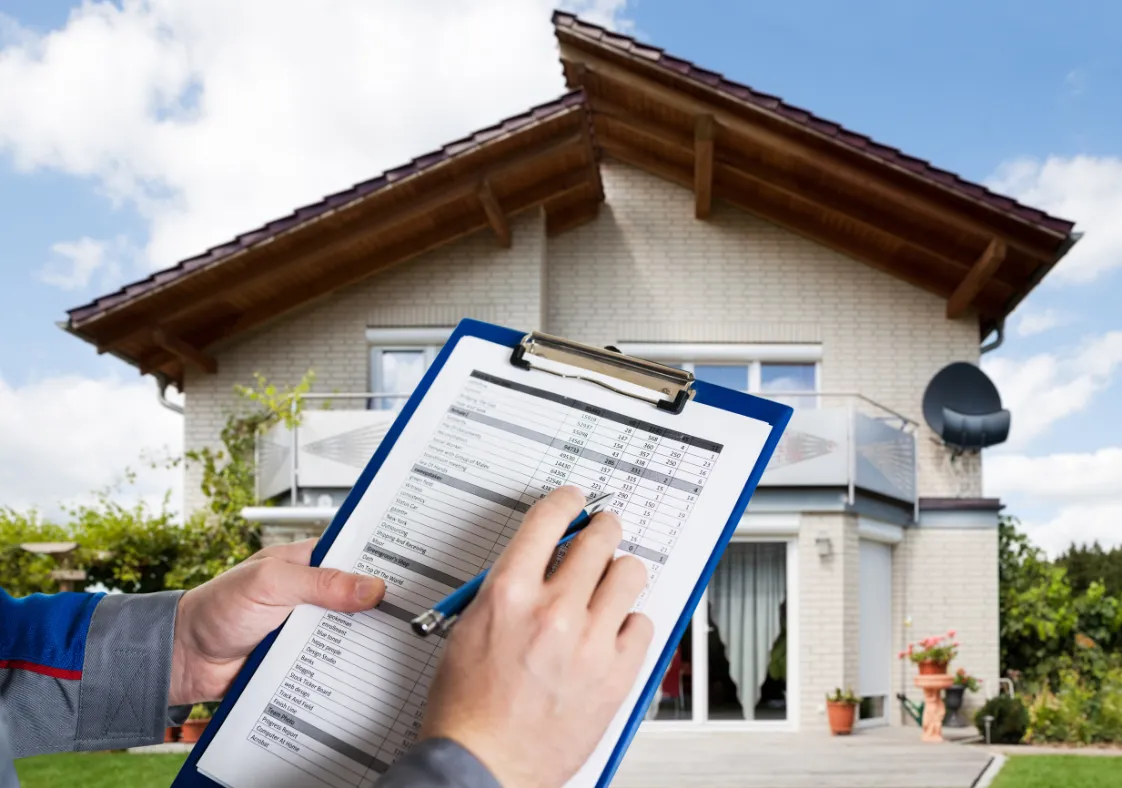LET'S TALK
GET IN TOUCH

Home Inspection Tips for Naperville Buyers: What to Look Out for Before You Buy
Home Inspection Tips for Naperville Buyers: What to Look Out for Before You Buy
When buying a home in Naperville, a thorough home inspection can make the difference between a dream home and a money pit. As you consider properties, knowing what to watch for in the inspection process can protect your investment and give you peace of mind. Naperville’s unique climate, seasonal weather, and local building codes make certain areas more prone to issues than others, so let’s explore some key factors that buyers should keep in mind during a home inspection.
1. Foundation and Basement Issues
With Naperville’s chilly winters and often wet springs, homes are susceptible to foundation problems, including cracks and water infiltration. During the inspection, make sure the inspector checks for:
Foundation Cracks: Small, hairline cracks can be normal, but large or growing cracks, especially in basement walls or floors, could indicate shifting or sinking.
Water Damage: Look for signs of moisture in the basement, such as musty odors, visible mold, or water stains. Naperville’s clay-rich soil can lead to basement flooding in homes without proper drainage systems.
2. Roof Condition and Age

The Midwest's seasonal weather, especially snow and ice, can take a toll on a home’s roof. Ask the inspector to evaluate:
Roof Age: Many roofs last around 20-25 years, so knowing how much life is left can help budget for future repairs.
Shingle Condition: Look for missing, cracked, or curling shingles, which can signal roof aging or damage.
Flashing and Chimney: Poorly sealed areas around chimneys or vents can lead to leaks and heat loss.
3. HVAC and Furnace Efficiency
Naperville’s winters require reliable heating, so inspecting the HVAC system is crucial. Be sure your inspector checks for:
System Age and Condition: Heating and cooling systems generally last 10-15 years. Knowing the age and maintenance history can help you predict future expenses.
Air Filter and Ducts: Clean ducts and regularly changed filters promote efficiency and indoor air quality.
Energy Efficiency: Many older Naperville homes have HVAC systems that may not be energy-efficient. An inspector can help determine if upgrades may be needed to improve performance and reduce utility costs.
4. Plumbing and Water Systems
With Naperville’s climate, pipes can be prone to freezing in the winter if they aren’t well-insulated. Look for:
Leakage and Corrosion: Inspect pipes under sinks, in basements, and behind the walls for signs of rust or leaks.
Water Heater: Check the water heater’s age, as they typically last around 10 years. Look for water stains or corrosion around the tank.
Water Pressure and Quality: Poor water pressure could indicate issues with pipes, and some older homes may have lead or galvanized piping, which may need updating to meet modern standards.
5. Electrical System Safety
Older homes may have outdated electrical systems that aren’t up to current codes. Ensure your inspector examines:
Wiring Type: Outdated aluminum wiring or knob-and-tube wiring is often considered unsafe and could require replacement.
Breaker Panels: Verify that the electrical panel is in good shape, not overloaded, and labeled correctly.
GFCI Outlets: Ground Fault Circuit Interrupter (GFCI) outlets are required by modern codes for outlets near water sources. An inspector can tell you if any outlets need to be updated for safety.
6. Attic Ventilation and Insulation
Attics are prone to poor ventilation and insulation issues, leading to higher energy bills and potential structural damage. Ask the inspector to assess:
Ventilation: Proper ventilation prevents moisture build-up and regulates temperatures, which is especially helpful during humid Naperville summers.
Insulation Levels: Insulation helps maintain consistent indoor temperatures and reduces energy costs. Many older homes may need additional insulation.
Signs of Pests: Look for droppings or other signs of pests like rodents or bats, which can cause damage and health risks.

7. Windows and Doors
Energy-efficient windows and doors are essential to withstand the extremes of Naperville’s climate. Your inspector should check:
Window Seals and Frames: Loose or broken seals can lead to drafts, which increase heating and cooling costs. Inspect for signs of condensation between double-paned windows, which often means a broken seal.
Door Seals and Weatherstripping: Worn weatherstripping around doors allows drafts and moisture inside, which could lead to mold and increased utility costs.
8. Exterior Drainage and Landscaping
Proper drainage is critical to protecting the foundation and preventing basement flooding. In Naperville, where seasonal rains can be intense, inspectors should evaluate:
Gutters and Downspouts: Well-maintained gutters and downspouts help keep water away from the foundation. Inspect for clogs or poor drainage that may cause water pooling near the foundation.
Land Slope: Properties should ideally slope away from the home to prevent water from collecting near the foundation.
Yard Conditions: Overgrown or invasive plants near the foundation can lead to cracks and leaks over time, so landscaping maintenance may be necessary.
9. Local Building Codes and Permits
Naperville has specific building codes, especially for renovations or additions. Verify if previous work on the property meets these standards by asking for:
Permit Records: Major repairs or additions should have accompanying permits to confirm they were completed to code.
Code Compliance: Outdated wiring, plumbing, or lack of safety features may mean costly upgrades to bring the property up to local standards. Some issues, like inadequate ventilation or substandard insulation, can be brought to your attention by your inspector.
Final Thoughts
A home inspection in Naperville, IL, can be a valuable opportunity to understand the true condition of your potential investment. Focusing on the areas above will help you make an informed decision, avoid surprises, and know what to budget for in the future. With a reliable inspector and a detailed inspection report, you’ll be able to negotiate repairs or make smart plans for any future upgrades, ensuring that your Naperville home is safe, comfortable, and a sound financial investment.
LOOKING FORWARD TO MEETing
CORPORATE OFFICE





